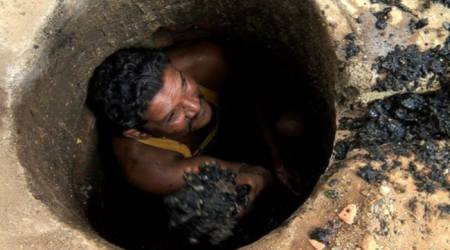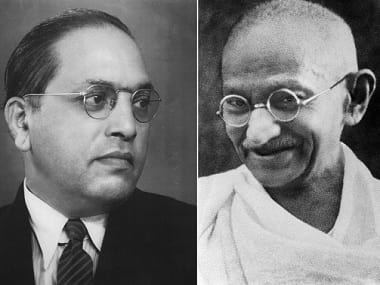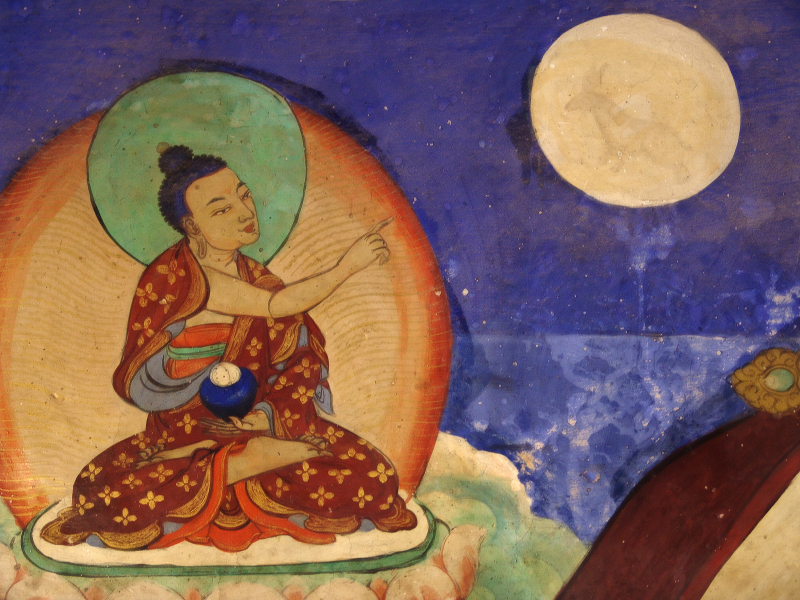In this remarkably honest and transparent article Professor Avijit Pathak has reflected on his own journey towards a casteless identity.
Prof. Avijit Pathak teaches at the Centre for the Study of Social Systems, Jawaharlal Nehru University, New Delhi.
I am a Brahmin, they say. Yes, they have a point. I was born in a Hindu family. And, as my title suggests, my ascriptive status makes me a Brahmin. This classification makes me privileged as well as condemned. I am privileged because of my location in a forward caste family; and I am condemned because of the legacy of Brahminism: the way it hierarchizes, stigmatizes and oppresses a large section of our society. But who am I? Am I a Brahmin simply because of the accident of my birth? Or, am I something more—beyond neat classifications and categories? I cannot escape this existential question.

Invisible Caste: My Early Socialization
Let me begin with my childhood—the process of early socialization. My parents did not make me conscious of my caste. They were not excessively ritualistic. Well, occasionally I heard them speaking of proper caste alliance for my elder sister’s marriage. Apart from that, there were no other visible markers of our caste affiliation. Yes, I came to know about different castes; but never did it affect my social relations. Friends were friends; teachers were teachers; neighbors were neighbors. Their caste identities were not my concern. I was completely unaware of caste associations or exclusionary identities. Possibly the fact of my growing up in West Bengal—a state where caste was not so distinctively political in the sense of identity-based mobilization—played a role. There could be another reason. I was born in a Brahmin family. Never did I experience the trauma of caste hierarchy. As it is said, caste remains invisible only for the privileged castes. However, the fact is that I grew up with the lightness of being; I did not carry my caste with me. True, I too passed through the ritual of sacred thread ceremony. I, however, refused to wear it; my parents did not insist.
I experienced the reality of class rather than caste. For instance, ours was a simple middle class family; my father was a government official; and his monthly salary was the only source of income. I could see the austerity of my mother: the way she used to manage with the limited resources for our collective welfare. As I feel, it was class, not caste that restricted my horizon. We were skeptical of the rich, apprehensive of the display of wealth. We felt easy and comfortable with people like us—simple, honest and not rich, and their caste did not matter. Somehow, I learned to give more importance to class rather than caste. And nobody condemned me as a Brahmin. Possibly, they did not find anything distinctively ‘Brahminical’ about me, or our family. Like everyone else in the locality, we too read Tagore, worshipped Subhas Bose, celebrated Durga Puja and enjoyed Mohunbagan-East Bengal football match. In a way, as a middle class Bengali, I was growing up with a feeling of castelessness.

Confronting the Harshness of Caste
However, in the process of growing up—particularly during my university days as both a student and a teacher—caste question began to confront me. My intense engagement with sociology made me familiar with the extensive literature on caste: from Louis Dumont’s Homo Hierarchicus to M.N. Srinivas’s work on sanskritization and dominant caste; I read about the politics of caste: the backward caste movement, Dalit uprising and the use of caste identity in electoral politics. Furthermore, Ambedkar, Phule and Periyar forced me to look at some of our dharmashastras and critique their inherent patriarchal Brahminism. Again, I witnessed the social process of reservation, the changing demography of the university space. I saw a passionate group of students and teachers from marginalized castes. They were no longer silent. They were eager to assume the active role of changing history through new confidence and new language of assertive politics. Their look made me aware of my invisible caste, my privileged location, the heritage of oppressive Brahminism that my ancestors carried. I was being perceived as a ‘Brahmin’ teacher; I was asked not to remain indifferent to the caste question. I realized that this time, because of ongoing historical transformation, I too could be objectified, stigmatized and scandalized as a ‘Brahmin’ Professor incapable of understanding the agony of Dalit students.
Do they trust me? I began to ask myself. Yes, with a great degree of empathy I do realize the reasons for their apprehension. It is not easy for the oppressed to trust the oppressors. It is not easy to forget the entire history of subjugation and humiliation. The new language of socio-political assertion gave them the voice. It is no longer the privilege of forward caste people like me to objectify them; now I am being objectified. Once my ancestors deprived them of their humanness and reduced them into frozen categories. And now I experience the same process. It is difficult for them to see me as just humane; I am now my caste; I am a stereotype; my birth is my destiny, and, as they feel, I can’t be anything more than being an oppressive/ritualistic Brahmin.
Yes, it hurts. Who wishes to be reduced into a stereotype? But then, is there an environment of trust? Is there anybody to acknowledge that I am not an abstracted category; I am a possibility, a being evolving, growing every moment? We are ‘Brahminical’, they argue. It makes me guilty. However, I dare to ask myself: What does it mean to be ‘Brahminical’? With my limited intelligence, I tell myself that to be ‘Brahminical’ means to be oppressively hierarchical; it means the power of privilege; it is against the ethos of inclusive/egalitarian culture; and it means sanctifying the religious texts that propagate the ideology of Brahminism. And then, I ask myself: Am I ‘Brahminical’ simply because I was born in a ‘Brahmin’ family? Or is it possible that even non- Brahmins can prove to be ‘Brahminical’ in their social practices?
Against the Fixity of Caste
First, I evaluate myself severely, and I find the following about my being. My friends and students are from diverse caste/religious backgrounds. I like to believe that they have never seen any practice on my part that the laws of Manu prescribed for the Brahmin. Yes, I know that we live in a society characterized by heightened division of labor. I teach; someone is a gardener helping the flowers to bloom in my garden. I meet a cobbler, a barber, a plumber, a garbage collector. Our domains of work are differentiated. And in purely economic terms our life-situations are asymmetrical and different. But then, I see the shared humanness in all of us. Even though my class privilege might have tried to act like a barrier, my interactions, as I feel, are reciprocal, communicative, humane without any trace of ritualistic ‘purity and pollution’. There is no forced diplomacy in it. It is natural and rhythmic. Well, my cultural capital is with me. I love Darjeeling tea, the majesty of the Himalayan peaks, the intensity of Indian classical music, and the spiritual discourses of the Upanishads. Even though I am fond of fish curry, I am becoming increasingly inclined to vegetarianism. Are these traits ‘Brahminical’? I am not very sure. One thing I know. I feel that this cultural capital is not anybody’s privilege. I imagine a world in which a fisherman’s daughter would learn Bharatanatyam dance . Likewise, my taste for classical music should not prevent me from learning the skills of a tailor or a carpenter; nor should it prevent me from working with the ‘dirt’: cleaning my toilet, washing my clothes or removing the blockage in the drain. Second, and here is the irony, there are occasions when I have seen the traces of ‘Brahminism’ in those who otherwise speak of anti-Brahminism all the time. I have seen ‘politically correct’ professors ruthlessly hierarchical in their dealings with their maids, cab drivers and even research students. I have seen ‘Dalit’ politicians with the similar sadism that is the caharacteristic of the typical ‘Brahmin superman’ Ambedkar condemned. Hierarchy, manipulative politics, greed—these vices are no longer the monopoly of select Brahmins.
So what do I do? No, I can’t remain contented with blame game. I do realize that casteism has to be overcome and eradicated from our society. But this requires, as Gandhi taught us, an environment of care, trust and hope, not the reproduction of mistrust and broken communications. This needs a self-transformative education: a culture of living that encourages us to see ourselves as humane—beyond all narrow/segmented identities. Let a Dalit student exist, for me, as just humane; and let, for a Dalit student, I exist as equally humane; and let us learn to trust each other, and give each other the space and opportunity to evolve, grow and experience the fusion of horizons. Yes, caste continues to exist, caste-related violence recurs every day. However, I tend to believe that caste cannot be fought through the logic of caste. A practice that is exclusivist, hierarchical and violent cannot be overcome through yet another practice of exclusion: we are Dalits, they are Brahmins, never can we meet, and work together for collective redemption. The answer to exclusion is inclusion; the answer to hierarchy is symmetry; the answer to broken communication is dialogue; the answer to ‘purity-pollution’ dichotomy is the integration of the mental and the manual; and the answer to violence is love. Moreover, to fight the fixity of caste is cultivate the human potential for self-transformation. Did not Ambedkar fight the pathology of stigmatization, and become a great scholar and emancipator? Did not prince Siddharth evolve and become Gautam Buddha? Did not ‘bania’ Gandhi become a leader of the subaltern?
I acquire the courage. Who says I am a ‘Brahmin’ oppressor? I am a possibility—beyond all categories. I am not doomed forever.
The New Leam has no external source of funding. For retaining its uniqueness, its high quality, its distinctive philosophy we wish to reduce the degree of dependence on corporate funding. We believe that if individuals like you come forward and SUPPORT THIS ENDEAVOR can make the magazine self-reliant in a very innovative way.













